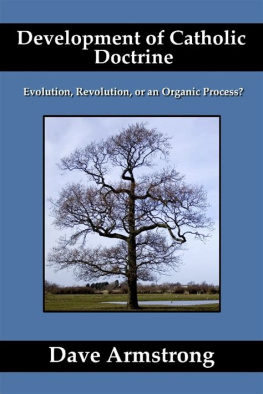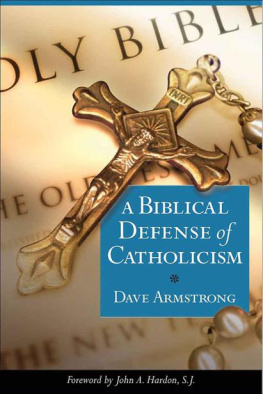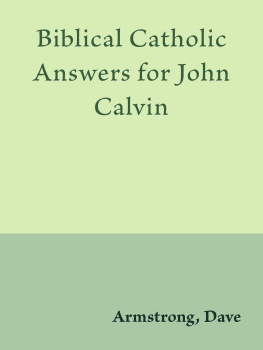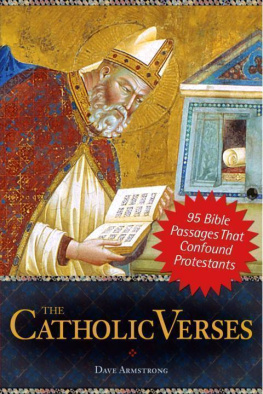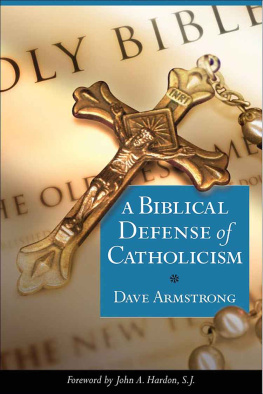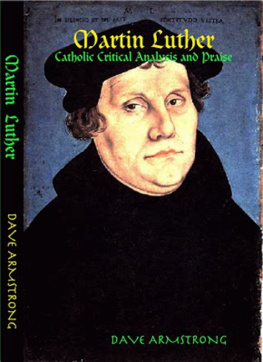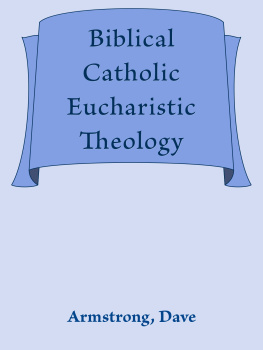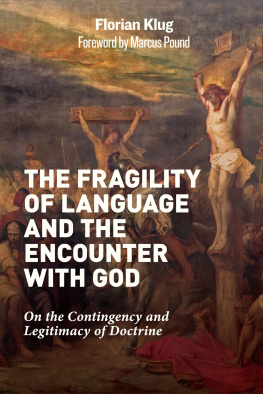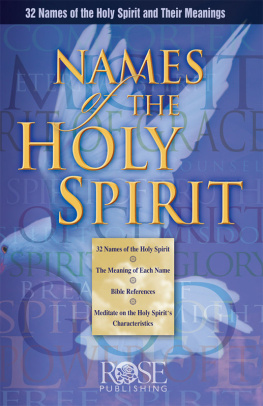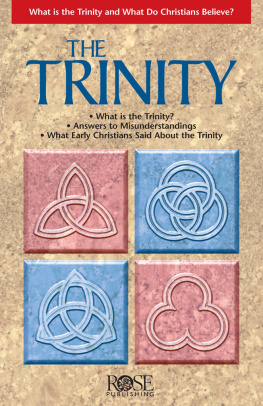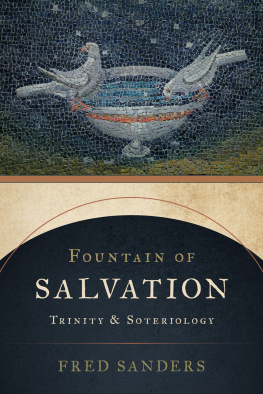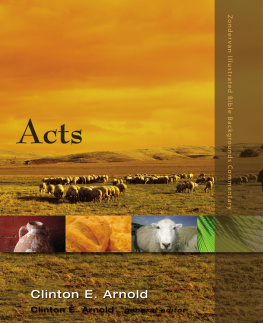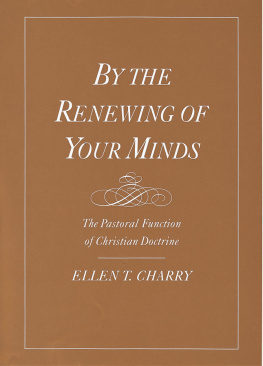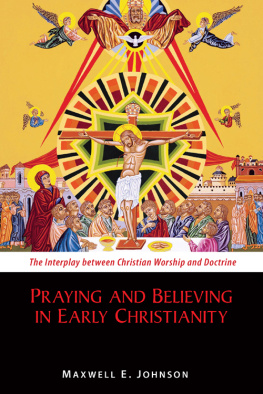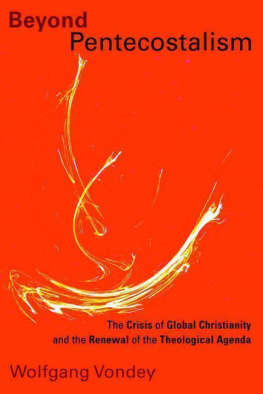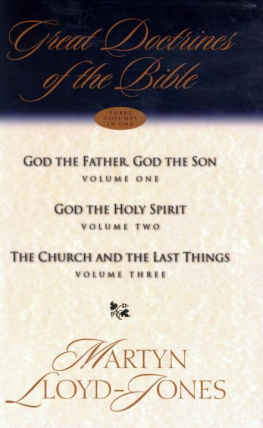Dave Armstrong
Development of Catholic Doctrine
Evolution, Revolution, or an Organic Process?
Copyright 2007 by Dave Armstrong
All rights reserved.
Most biblical citations are from the Revised Standard Version of the Bible ( 1971) and New Revised Standard Version ( 1989): both copyrighted by the Division of Christian Education of the National Council of the Churches of Christ in the United States of America. All emphases have been added.
Cover design by Chad Toney.
Cover photograph by Lynne Lancaster.
For related reading on the authors blog, see:
Development of Doctrine
http://socrates58.blogspot.com/2006/11/development-of-doctrine-index-page.html
Venerable John Henry Cardinal Newman: The Father of the Second Vatican Council
http://socrates58.blogspot.com/2006/04/venerable-john-henry-cardinal-newman.html
The kingdom of heaven is like a grain of mustard seed which a man took and sowed in his field; it is the smallest of all seeds, but when it has grown it is the greatest of shrubs and becomes a tree, so that the birds of the air come and make nests in its branches.
(Matthew 13:3132)
Dedication
To my beloved aunt Dorothy Armstrong (19362002), a lovely and caring Christian woman who brought joy and happiness into the lives of all who were privileged to have known her. I shall miss her terribly. May God grant her eternal rest and peace.
Chapter One
- An Overview of Development of Doctrine: Is it a Corruption of Biblical Teaching?
The Catholic Church defines doctrinal development as a growth of depth and clarity in the understanding of the truths of divine revelation. It is important to understand that the substantial or essential truths at the core of each doctrine (as part of the one apostolic deposit, given from Christ to the apostles) remain unchanged. The Catholic Church preserves this deposit, and is the Guardian of it. Only the subjective grasp of men increases, without the actual doctrine or dogma changing in an essential way. This is the main distinction to keep in mind when considering development.
This increase is the result of the prayerful reflection of the Church, theological study and research (often occasioned by heretical challenges), practical experience, and the collective wisdom of the Churchs bishops and popes, especially when joined in Ecumenical Councils.
Like many Christian doctrines, the idea of doctrinal development is based on much implicit or indirect scriptural evidence. The best indications are perhaps Mt 5:17, 13:3132, Jn 14:26, 16:13, 1 Cor 2:916, Gal 4:4, Eph 1:10, 4:1215. Furthermore, doctrine clearly develops within Scripture itself (progressive revelation).
Some examples would be: doctrines of the afterlife, the Trinity, the Messiah (eventually revealed as God the Son), the Holy Spirit (a Divine Person in the New Testament), the equality of Jews and Gentiles, bodily resurrection, sacrifice of lambs evolving into the sacrifice of Christ, and so forth. Not a single doctrine emerges in the Bible complete with no further need of development.
In general, whenever Holy Scripture refers to the increasing knowledge and maturity of Christians and the Church, an idea very similar to doctrinal development is present. Holy Scripture, then, is in no way hostile to development.
The canon of Scripture itself is an example of developing doctrine. The New Testament never informs us which books comprise itself, and its canon (final list of books) took about 360 years to reach its final form (at the Council of Carthage in 397). For instance, the books of Hebrews, James, 2 Peter, 2 and 3 John, Jude, and Revelation were not widely accepted by the Church until 350 A.D.
And books such as Barnabas and 1 and 2 Clement were considered Scripture by many at the same time (for example, the manuscripts Codex Sinaiticus and Codex Alexandrinus). Of the 27 New Testament books, 14 were not mentioned at all until around 200 A.D., including Acts, 2 Corinthians, Galatians and Colossians.
On what grounds, then, can we receive the canon today except on the authority of the Church in the fifth century? Tradition, Church authority, and development were all crucial elements in the very human process of selection of the biblical canon.
It is foolish to assert, then, that the knowledge of what books constitute Scripture is attained simply by an intuitive and subjective inkling within each Spirit-filled person. If the early Church had such a difficult time determining what was and was not Scripture, how could someone many centuries later claim that it was altogether simple for him and every other sincere Christian to determine?
The Church is called the Body of Christ often (e.g., Eph 1:223), and is compared to a seed that grows into a tree (Mt 13:312). Seeds and bodies grow and expand. Yet Protestants tend to see Church and doctrine as more like a statue, subject to pigeon droppings (i.e., so-called Catholic corruptions!). This robs the metaphors of Christ of their essential meaning.
It is impossible to claim that no development occurred in Church history, or that it ceased after the 1st, 2nd, 3rd, or 5th century, etc. (all arbitrary human traditions). The Bible is not absolutely clear in every part, and requires the developing wisdom of the Church.
Doctrines agreed upon by all develop, too. The Divinity or Godhood of Christ was only finalized in 325 at the Council of Nicaea, and the full doctrine of the Trinity in 381 at the Council of Constantinople. The dogma of the Two Natures of Christ (God and Man) was proclaimed in 451 at the Council of Chalcedon. These decisions of General Councils of the Church were in response to challenging heresies. Why should Protestants accept these authoritative verdicts, but reject similar proclamations on Church government, the Eucharist, Mary, Purgatory, etc.?
Although understanding increases, the essential elements of doctrines exist from the beginning. Todays Church shouldnt be expected to look like the primitive Church if it is a living, vibrant, spiritual organism. But even the early Church looks like a small Catholic tree. It doesnt look like a Protestant statue, increasingly corrupted by an encroaching Catholicism, as one common viewpoint would have it.
Venerable John Henry Cardinal Newman (18011890), the great English convert to Catholicism, who is widely regarded as one of the most profound religious thinkers of his time, wrote in his Essay on the Development of Christian Doctrine (1845), the one indispensable work on this subject:
One thing at least is certain; whatever history teaches at least the Christianity of history is not Protestantism. If ever there were a safe truth, it is this. And Protestantism as a whole, feels it, and has felt it. This is shown in the determination of dispensing with historical Christianity altogether, and of forming a Christianity from the Bible alone To be deep in history is to cease to be a Protestant.
The bulk of Newmans extraordinary work is devoted to the exposition of a series of analogies, showing conclusively that a static conception of the Church (both historically and theologically) is incoherent and false. He argues, for example, that notions of suffering, or vague forms of the doctrine of Purgatory, were universally accepted, by and large, in the first four centuries of the Church, whereas, the same cannot be said for the doctrine of original sin, which is agreed upon by Protestants and Catholics.
Protestants argue that purgatory is a later corruption, yet it was present early on and merely developed. Original sin, however, was equally if not more so, subject to development. One cannot have it both ways. If purgatory is unacceptable on grounds of its having undergone development, then original sin must be rejected with it. Contrariwise, if original sin is accepted notwithstanding its own development, then so must purgatory be accepted. Thus Protestantism is inconsistent in its selective espousal of Christian beliefs. Newman states, in summary:
Next page
